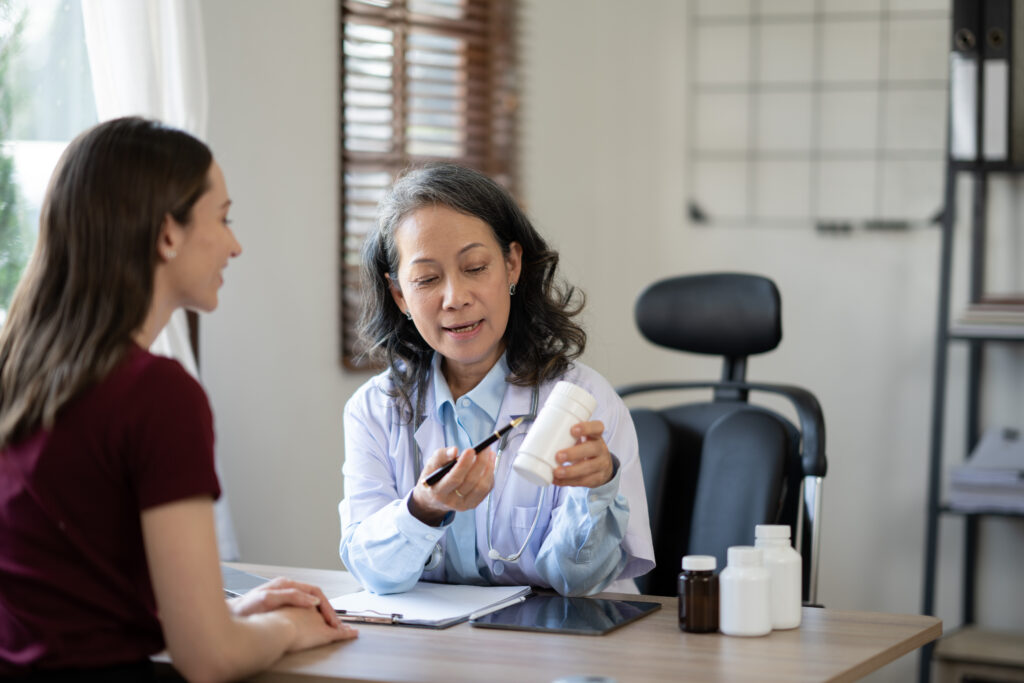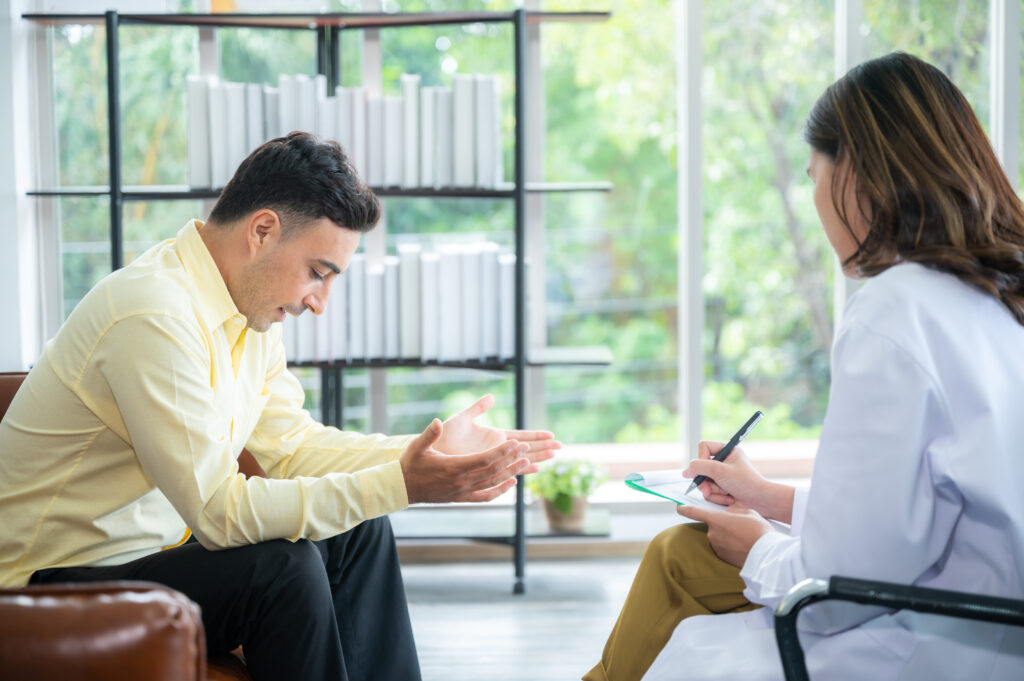
Chlamydia is a widespread sexually transmitted disease. Caused by the bacterium Chlamydia trachomatis, the infection is readily treatable by antibiotics. However, the infection can go unnoticed and untreated for long periods of time. This is because it is often asymptomatic- three out of four women who test positive for chlamydia have no reported symptoms. Even so, the disease can have big implications on their health and fertility both short-term and long-term. Women, especially young women (ages 15-24) are more sensitive to getting chlamydia, and also more susceptible to more severe outcomes of the disease.
Women are more sensitive to getting chlamydia
According to data from 2021, over 1.6 million people in the U.S. tested positive for chlamydia. A majority of these were women, especially young women. The groups that had the most chlamydia cases were ages 20-24, followed by 15-19. In the age group of 20-24, chlamydia cases in women were more than twice those in men. In the age group of 15-19, chlamydia cases in women were more than three times those in men.
Short-term symptoms of chlamydia in women
Women will often stay asymptomatic while carrying chlamydia. When symptoms are felt, they can include unusual bleeding in between menstrual periods, pain or discomfort in the back or lower abdomen, pain or discomfort during sex, and unusual or increased vaginal discharge. There may be a burning sensation when passing urine.
Oral and rectal sex with infected individuals can cause other symptoms including sore throat, red or white spots around the mouth, rectal pain, or rectal discharge or bleeding. The infection can also cause nausea and fever.
Symptoms of chlamydia can show up weeks after having sex with an infected person. The symptoms can also show up for a few days and then disappear, erroneously leading people to believe that they are better now. But in almost all cases, chlamydia does not go away without getting tested and treated by a doctor.

Long-term symptoms of chlamydia in women
If chlamydia is left untreated, it increases your chance of getting other parasites like HIV. Chlamydia can also do irreversible harm to women’s reproductive system by causing pelvic inflammatory disease (PID).
PID can cause long-term pain in the pelvic and abdominal regions. PID can also cause inflammation and damage to the ovaries, the uterus, and the fallopian tubes, leading to infertility. In fallopian tubes, scar tissue can develop as a result of the infection and inflammation, which can then block the fallopian tubes.
PID can also result in ectopic pregnancies. In an ectopic pregnancy, the embryo does not implant in the main cavity of a woman’s uterus where it can grow to be a full-term infant but instead implants in another part of the woman’s reproductive such as a fallopian tube, an ovary, or the cervix. These areas of the body are not equipped to carry a pregnancy, so the embryo will not survive. The embryo growing in these places can cause them to rupture which can be potentially life-threatening to the woman.
Risks for pregnant women
Pregnant women can pass the parasite that causes chlamydia to their baby during birth. The newborn can get a lung infection, pneumonia, or eye infection. Pregnant women who have chlamydia are also more likely to give birth too early (premature birth).
How can I know if I have chlamydia?
It is not possible to know if you have chlamydia without testing. If you have had unprotected oral, vaginal, or anal sex, you may have chlamydia. Your partner may not show any symptoms and still pass chlamydia on to you.

What tests are available for chlamydia?
The best tests for chlamydia are molecular tests administered by your medical provider. These tests are conducted in a laboratory or point of care, and the results will typically be ready in 1-3 days.
Choices of tests and testing sites include:
- At-home tests
These test kits allow you to collect your samples at home and send them to a laboratory for testing. A sample may include urine or vaginal swab.
Pros- Convenience of at-home testing.
Cons- Kits can be expensive.
- Tests offered at your physician’s office.
Pros- Reliable and safe testing and treatment.
Cons- You may not have access to healthcare or health insurance.
- Tests offered at urgent care facilities.
Pros- They can get you quick help especially if your symptoms are painful.
Cons- They can be expensive.
- Tests offered at STD clinics.
These clinics are affiliated with your local health department or clinics linked through the CDC (https://gettested.cdc.gov/)
Pros- The tests will be top quality, and will often be discounted or may even be free. The clinics are confidential, and your results will only be released to you. This is the best option even if you don’t have health insurance.
Cons- you may need transportation to get to the clinic.
Treatment for chlamydia
If you test positive, you will be prescribed medication (antibiotics) for the infection. You may need repeat testing or monitoring of your health over time depending on the intensity of your symptoms and your lifestyle.
Precautions
- Always use medication that your medical provider prescribed to you personally and one that is picked up from a reliable pharmacy. Not only can the wrong prescription harm your health further, but it may also be deadly. During the current fentanyl epidemic in the U.S., fake prescription pills can be obtained online or from untrustworthy sources which are impossible to distinguish from the real medication. The DEA has found that about 6 out of 10 fake prescription pills can contain a lethal dose of fentanyl.
- Do not have sex until your treatment is complete, and all symptoms are gone. Everyone who had sex with you when you had chlamydia possibly got infected too. So let them know and encourage them to get treatment as well. Once you start having sex again, make sure that your partner(s) are chlamydia-free. If you have sex with someone who has chlamydia, you could get infected again. Previous treatment with antibiotics will not protect you from getting re-infected, and the same partners can keep passing it back and forth to each other.
Prevention of chlamydia
You can prevent chlamydia by:
- Not having sex. Oral, vaginal, and rectal sex can spread chlamydia. Chlamydia can spread from sharing sex toys with someone who has chlamydia. The parasitic bacteria that cause chlamydia cannot stay alive on surfaces beyond a few minutes, but it is always best to thoroughly clean sex toys before using them.
- Staying monogamous. If your partner and you have tested negative for chlamydia and other sexually transmitted infections (STIs), and you both only have sex with each other, chances are you won’t get any STIs. The risk increases as the number of sex partners increases.
- Proper use of condoms. Carefully using condoms every time you have oral, anal, or vaginal sex will reduce your chances of getting chlamydia from an infected partner. Other forms of birth control such as pills, vaginal rings, diaphragms, etc. will not protect you from getting chlamydia.
You can say No
Don’t feel pressured to have sex with anyone. Your health and well-being are always your top priorities. If you do not wish to have sex but feel pressure from your peers or your partner, remember that you can say no.
The CDC links useful information for girls who wish to learn more about practicing abstinence:
https://www.girlshealth.gov/body/sexuality/whywait.html
The information provided in our blog posts is for informational purposes only and is not intended as a substitute for professional medical advice, diagnosis, or treatment. Always seek the advice of your physician or other qualified health provider with any questions you may have regarding a medical condition. Never disregard professional medical advice or delay in seeking it because of something you have read on this blog.






